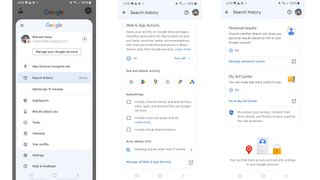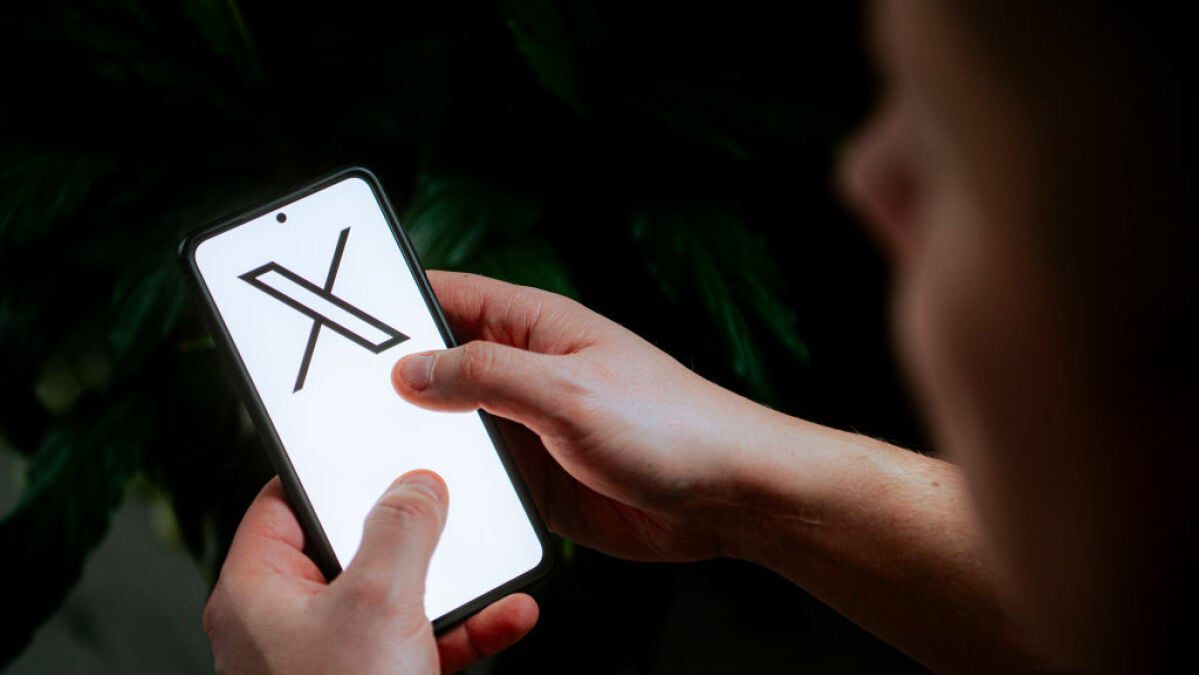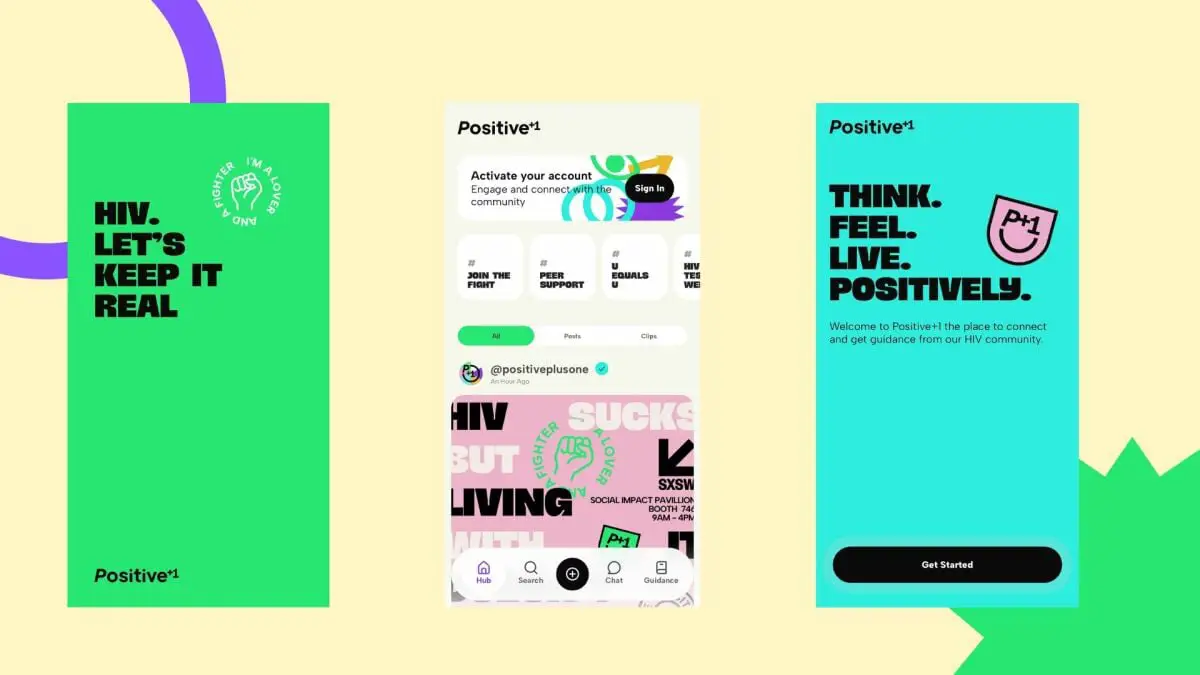Samsung should make DeX the default on tablets
Beyond the alphabet (Image credit: Nicholas Sutrich / Android Central) Beyond the Alphabet is a weekly column that focuses on the world of technology inside and outside the confines of Mountain View. When it comes to tablets and foldable devices, it’s hard to argue with the idea that Samsung offers the best experience. Samsung’s “everything […]

Beyond the alphabet
Beyond the Alphabet is a weekly column that focuses on the world of technology inside and outside the confines of Mountain View.
When it comes to tablets and foldable devices, it’s hard to argue with the idea that Samsung offers the best experience. Samsung’s “everything but the kitchen sink” approach is finally paying off now that we’re out of the dark days of TouchWiz. And while the company continues to improve the software, Samsung DeX remains a key selling point for those who want a truly “all-in-one” device, which is why I think it should be the go-to option. default on tablets.
DeX goes unnoticed because it’s almost never mentioned every time a new flagship device is unveiled. However, changes and improvements are regularly made to allow you to turn your device into a laptop.
The most recent overhaul came with the release of One UI 6, which introduced the “New DeX” interface. Instead of having a completely different home screen and interface, New DeX basically feels like a supercharged version of what you get on something like the Galaxy Tab S9.
You might even have trouble noticing that you’re using “New DeX.”
Once enabled, your home screen remains the same, including your app layout and any widgets you may have added. But as soon as you open an app, you’ll immediately notice something different. Instead of the app taking up your entire screen, as was the case before, it opens in an app window, as if you were using “Classic DeX.”
This is ideal for those who want to open multiple apps at the same time without having to deal with the annoyances of split-screen. You still have access to these features, but essentially you get a lot more flexibility than the traditional Android tablet experience. The taskbar also remains persistent, but even your notifications and quick settings toggles are available just by swiping down.
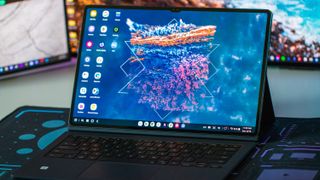
What I hope is that Samsung will introduce this “New DeX” as the default interface on new tablets and maybe even foldables like the upcoming Galaxy Z Fold 6. It combines the best of both worlds, giving us the possibility of using widgets. on the home screen while making it easy to open multiple apps in their own separate windows. Then Samsung can ditch the “New” and “Classic” monikers while still giving us access to both.
Unfortunately, I don’t think that’s what’s actually going to happen. Instead, I think Samsung is going to end up abandoning the DeX we’ve all come to know and love over the years. The “New DeX” will simply become “DeX”, while the action launcher experience will remain unchanged.
If you’re a fan of the “Classic DeX” interface, you might be a little worried about it disappearing. Fortunately, this is not the case, at least for the moment. Samsung allows you to go from “New” to “Classic”, but you’ll have to dig a little deeper.
This New DeX experience also doesn’t replicate a desktop experience, especially if you connect your tablet to an external monitor. For one, the only display settings option is to choose between “Mirror tablet screen” or “Use displays separately.” Even if you choose the latter option, New DeX doesn’t resize the display correctly, meaning you often end up with black bars on either side.
Overall, this automatically enables the “Multi-window for all apps” feature already available in the Labs section of the Settings app. There are a few other minor differences, such as the taskbar being able to hold more than four recently used apps. But it’s not really something I would describe as part of the “DeX” experience.
You may be wondering, “Would Samsung really abandon “Classic DeX?” » Well, the answer is quite simple. Yes, because he likes to make money. Samsung already sells its own line of laptops, and if you buy a tablet that basically does the same thing as a laptop but has better battery life, it loses potential sales. This is especially true of the Galaxy Tab S9 Ultra with its 14.6-inch AMOLED display, and when paired with the Book Cover keyboard, it’s about as close as you can get to having a Surface competitor running Android .
Samsung’s Galaxy Book 4 360 is probably the closest comparison to make, as it’s a 2-in-1 laptop with a touchscreen. Pricing starts at $1,099 for the Intel Core 5 model, paired with 8GB of RAM and a 512GB SSD. There’s also the Core 7 variant, priced at $1,349, but bumps the RAM up to at 16 GB and comes with 512 GB or 1 TB of storage.
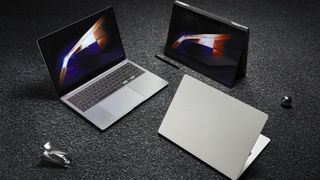 series Lifestyle Render” loading=”lazy” data-original-mos=”https://cdn.mos.cms.futurecdn.net/Pcrz2V9WKUi8wPCqaJueMn.jpg” data-pin-media=”https://cdn.mos.cms.futurecdn.net/Pcrz2V9WKUi8wPCqaJueMn.jpg”/>
series Lifestyle Render” loading=”lazy” data-original-mos=”https://cdn.mos.cms.futurecdn.net/Pcrz2V9WKUi8wPCqaJueMn.jpg” data-pin-media=”https://cdn.mos.cms.futurecdn.net/Pcrz2V9WKUi8wPCqaJueMn.jpg”/>
The Galaxy Tab S9 Ultra, on the other hand, starts at $1,199 with 256GB of storage, maxing out at 1TB for $1,619. Then you’re looking at another $350 for the Book Cover Keyboard, so on the surface the Book 4 360 is a better deal. But that’s only part of the story, as the Book 4 360 falls short of the Tab S9 Ultra in several respects.
On the one hand, although the screen is larger, it is also limited to a resolution of 1080p and is limited to a refresh rate of 60 Hz. Meanwhile, the Tab S9 Ultra is equipped with a larger screen small, making it better in terms of portability, while providing a better viewing and gaming experience thanks to the AMOLED panel and 120Hz refresh rate. Not to mention, your Galaxy Tab S9 Ultra’s battery will last for days , while that of Book 4 360 could spend a day, maybe two.
The Galaxy Tab S9 Ultra may be expensive, but it still offers better value than some of Samsung’s best laptops.
I wish I could tell you what the future holds and that Samsung will leave Classic DeX alone, in addition to introducing new features. Unfortunately, I don’t have a crystal ball and have no idea what Samsung’s long-term plans are with New DeX.
But there’s a reason I barely recommend anything other than a Samsung tablet to anyone who doesn’t want an iPad. That’s because the majority of Android tablets are a mix of disappointments. Whether it’s because they lack polish, aren’t updated very often, or are just plain bad. Unless something drastic happens, the Galaxy Tabs will remain my go-to recommendation even if “Classic DeX” is removed, but it will be much more difficult.
Samsung, please don’t ruin a good thing, even if your analytics show that DeX is not used by the vast majority of the user base.

